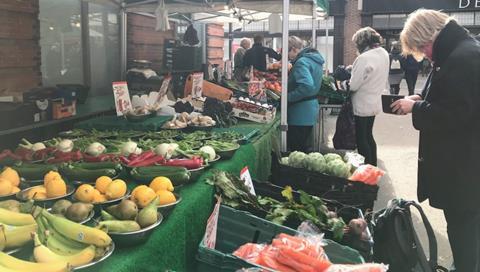
Fresh produce companies across Europe are working with governments and other officials to ensure that people can continue to buy all of the fruit and vegetables they need despite disruption caused by the Covid-19 outbreak.
According to industry association Freshfel, European suppliers have stepped up their efforts to ensure “continuous and diverse” supply of safe, high-quality fresh fruit and vegetables for consumers across the continent and around the world.
“With at-home consumption increasing as the outbreak develops, ensuring consumers can maintain a healthy, balanced diet with access to fresh fruit and vegetables remains a top priority for the European fruit and vegetable sector,” it said in a statement.
Together with its members, Freshfel has been closely monitoring the Covid-19 outbreak and considering its implications for fresh fruit and vegetable supply chains all over Europe.
Coronavirus has beenofficially declared a pandemic by the World Health Organization (WHO), and the group said the resultant closure of border crossings for people had delayed some operations in the fresh produce supply chain.
“However, all possible measures have been taken across the chain to maintain supply of high quality fresh produce,” it stated.
With the closure of restaurants and cafés in many countries, and with millions across Europe having to stay at home, consumers have become increasingly reliant on fresh produce being available in retail outlets for at-home consumption.
Freshfel said the industry was holding talks with public authorities to guarantee timely supply lines, with one solution being the introduction of a so-called ‘fresh corridor’, designed to fast-track trucks carrying highly perishable fresh fruit and vegetables.
“This includes securing vehicles and drivers in a timely manner in the right locations and introducing protocols to ensure trade flows,” it added.
Harvesting concerns
Discussions have also centred around the need to secure enough workers to harvest crops, to run packhouses and to manage other crucial processes further down the supply chain.
“Measures are being taken by all European fresh produce companies to provide the highest protection to workers in the supply chain,” Freshfel said. “Non-essential staff are working from home, distances between essential operating staff have been increased, the highest hygiene precautions in packhouses and wholesale markets are being taken and truck drivers are being isolated to decrease the risk of shortages of these crucial personnel in maintaining operations.”
In retail outlets, meanwhile, staff and consumer safety was of the highest priority, it noted.
“Precautions have increased to ensure the highest level of safety for essential staff restocking shelves to meet heightening demand for products and for consumers expecting safe, high-quality fresh products.”
While the European Food Safety Authority has stated that there is no evidence that transmission through food consumption could occur, Freshfel insisted the highest levels of food safety and hygiene were being met by operators in the fresh fruit and veg supply chain as the Covid-19 outbreak unfolded.
“The sector reminds consumers to follow the precautionary recommendations issued by the WHO on good hygiene practices during any food handling and preparation,” it added.
“This includes washing hands, using different chopping boards and knives for raw meat and cooked food and avoiding potential cross-contamination between cooked and uncooked foods. All these efforts by the sector are facilitating consumers in continuing to have a healthy balanced diet rich in fruit and vegetables throughout the outbreak.”



